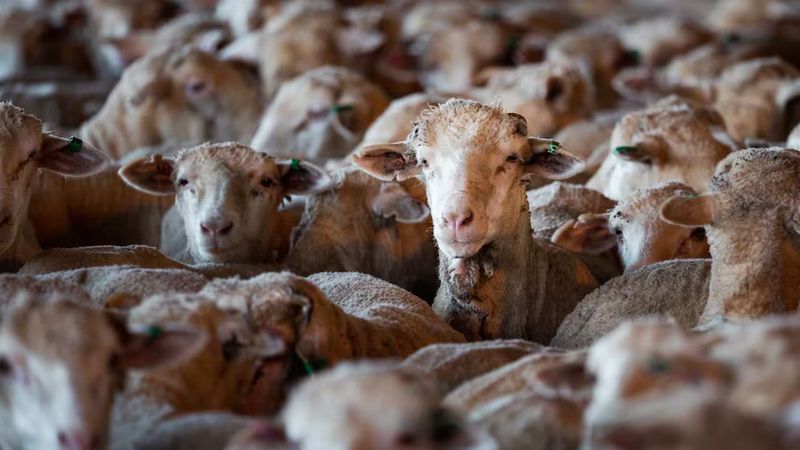
Market Pulse: Brazil’s Beef Growth, EU Deforestation Delay, and Australia’s Live Export Crunch
Brazil’s booming beef exports, a proposed one-year delay to the EU’s deforestation law, and the early slowdown of Australia’s live sheep trade shape this week’s market outlook.
Brazil Beef Exports Jump on Strong Chinese Demand
Brazilian beef exports surged by 49% year-on-year in August, driven largely by Chinese demand, according to trade data reported by UkrAgroConsult. Shipments reached nearly 272,000 tonnes, with China accounting for more than half of the total volume. The pace of growth has been remarkable: exports to China rose 67% compared with the same month last year, underscoring the Asian giant’s role as Brazil’s indispensable customer.
What this means: Brazil’s position as the world’s largest beef exporter is underpinned by its reliance on Chinese demand. This creates lucrative opportunities in the short term but also heightens exposure to geopolitical and economic risks tied to a single buyer. For EU importers, the growth highlights the challenge of competing for Brazilian supply at a time when stricter regulatory compliance requirements are looming.
What to do:
Brazilian exporters: Capitalise on strong Chinese demand but build diversification strategies in the Middle East and Southeast Asia to reduce dependence.
EU importers: Expect tighter access to Brazilian beef and prepare for higher compliance costs under the EU Deforestation Regulation.
Competing exporters (Australia, US, EU): Leverage quality standards, animal welfare claims, and sustainability certifications to differentiate in premium markets.
EU Deforestation Regulation Faces One-Year Delay
The European Commission has proposed a further one-year delay in the enforcement of the EU Deforestation Regulation (EUDR), pushing the compliance deadline for larger companies to December 2026. The delay reflects industry concerns over the readiness of IT systems and the ability of operators to provide traceability for commodities, including beef, soy, palm oil, and cocoa.
What this means: While the delay provides breathing space, it does not alter the direction of travel. Importers and exporters must still prepare for stringent traceability requirements, but some investment decisions may be deferred. For suppliers to the EU, the delay prolongs uncertainty and could result in uneven market access between “low-risk” and “standard-risk” countries once enforcement begins.
What to do:
EU importers and retailers: Use the additional time to strengthen due diligence processes, test traceability systems, and engage suppliers on compliance readiness.
South American exporters: Segregate supply chains to ensure “EU-eligible” beef can meet deforestation-free requirements.
Alternative exporters (e.g., Australia, US): Position traceability and sustainability as a competitive advantage in anticipation of tighter EU market rules.
Australia’s Live Sheep Export Slowdown
Although Australia’s live sheep export ban is not scheduled to take full effect until 2028, the sector is already contracting. Reports confirm no live-export vessels are scheduled from Western Australia for the rest of 2025, as shipping economics and political risks undermine the trade. Sheep farmers in Western Australia face an accelerated shift towards domestic processing, while importers in the Middle East may be forced to adapt their supply chains.
What this means: The phase-out is already reshaping the supply landscape years ahead of schedule. Middle Eastern markets risk losing access to a culturally significant product, while Western Australian producers face tough structural changes and potential exits from the industry.
What to do:
Australian farmers: Begin transition planning now, including exploring contracts with domestic processors and government support programmes.
WA processors: Consider investments in slaughter capacity and cold-chain logistics to handle redirected sheep flows.
Importers in the Middle East: Diversify live sheep supply by sourcing from Eastern Europe or East Africa, and expand reliance on chilled and frozen sheepmeat.
Sources
UkrAgroConsult – Brazilian beef exports rose 49% in August thanks to demand from China: https://ukragroconsult.com/en/news/brazilian-beef-exports-rose-49-in-august-thanks-to-demand-from-china/
Global ELR – European Commission proposes further one-year delay to the EU Deforestation Regulation: https://www.globalelr.com/2025/10/european-commission-proposes-further-one-year-delay-to-the-eu-deforestation-regulation/
ABC News – Australia live sheep exports slump amid phase-out plan: https://www.abc.net.au/news/2025-09-19/no-live-sheep-export-ships-wa-ban-looming/105789752
